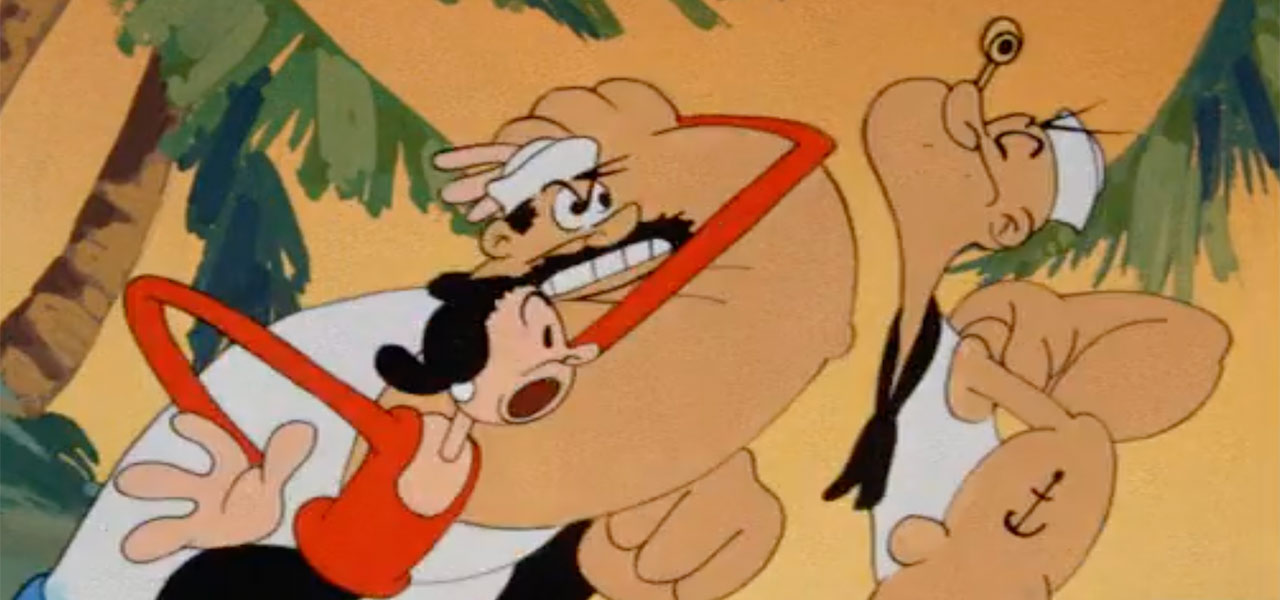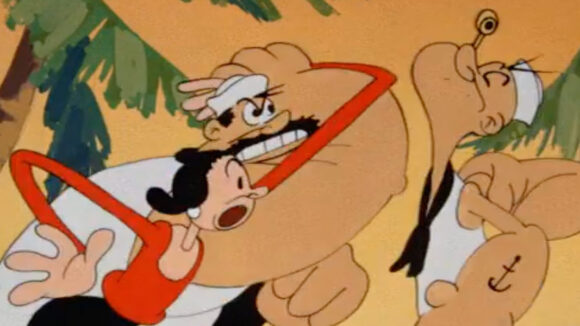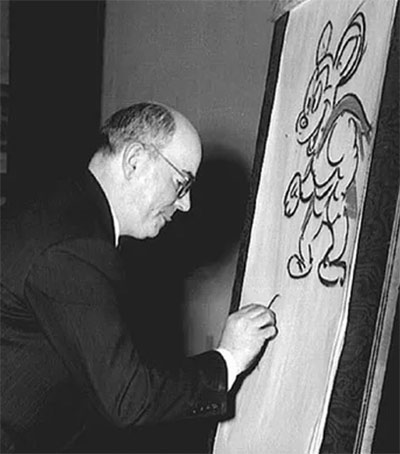

Animator Spotlight: Jim Tyer
One animator I’ve always admired but have never been able to successfully emulate is Jim Tyer (1904-1976), the eccentric genius responsible for what I consider to be the most deranged animation in film history. Tyer worked at many studios throughout his career, including Fleischer Studios and Bakshi Productions, but he is perhaps most closely associated with Terrytoons, the low-budget East Coast theatrical shorts studio whose line-up included Mighty Mouse, Gandy Goose & Sourpuss, and Heckle & Jeckle.

Tyer’s crude drawings and off-kilter movements can give the impression of being slapdash, but animation as screamingly funny as his doesn’t come about by accident. All of my attempts to copy Tyer just look jittery and unreadable, but Tyer’s work flows beautifully while maintaining the illusion of spontaneity. If you freeze-frame through this deliciously wonky Tyer scene from the Gandy Goose cartoon Dream Walking (1950), the drawings look random and arbitrary, and yet they play perfectly.
— Cartoon Study (@CartoonStudy) August 29, 2023
The Terrytoons were dismissed as retrograde in their day, but the studio’s lax quality control gave Tyer the opportunity to go nuts. There’s never any mistaking a Tyer scene, as he never made the slightest effort to stay on-model or blend in with the other animators. In his hands, relatively normal characters would suddenly erupt into squiggly hysterics, sporadically twitching into a gleeful frenzy. Check out this scene from A Merry Chase (1950); the first shot, handled by a different animator, is evenly timed and fairly ordinary… then Tyer takes over (as Dimwit Dog creeps out of the tree with a pistol) and the characters turn wrinkly and lopsided and start violently convulsing.
— Cartoon Study (@CartoonStudy) August 29, 2023
Some of Tyer’s peers thought he was sloppy, but Tyer knew exactly what he was doing. Just like a great jazz musician improvises around a melody, Tyer would bend and stretch his characters with a playful sense of experimentation. He would try crazy things that just weren’t done in animated films. Look at the way Tyer has Popeye and Bluto disappear for a single frame to show the impact of a punch in Famous Studios’ Shape Ahoy (1945).
— Cartoon Study (@CartoonStudy) August 29, 2023
Tyer was great at animating fights, but he didn’t need an excuse to go ballistic. In anyone else’s hands, this bit from the Mighty Mouse cartoon The Cat’s Tale (1951) would be a straightforward dialogue scene. But leave it to Tyer to turn something as simple as a close-up of a speaking character into a flurry of smears and warped features.
— Cartoon Study (@CartoonStudy) August 29, 2023
His Terrytoons work is mind-blowing, but I’m even more amazed by what Tyer was able to pull off on a shoestring tv budget. He animated – entirely by himself – all four episodes of Stuffy Durma, a segment on the Milton the Monster show about a millionaire hobo. There’s nothing wrong with limited animation if you approach every movement with as much creativity as Tyer does here.
— Cartoon Study (@CartoonStudy) August 29, 2023
In an industry where the contributions of individual artists are so often homogenized, Tyer remained 100% himself at all times. He spent his career working at studios that valued pumping out footage over quality, but he approached every assignment with gonzo inventiveness. The guy was a true eccentric, and there will never be another one like him. Here’s one final Tyer scene, featuring some of his best acting, from the Terrytoon The Lyin’ Lion (1949).
— Cartoon Study (@CartoonStudy) August 29, 2023
Thanks to Devon Baxter and Thad Komorowski for posting the films from which these clips were sourced.


